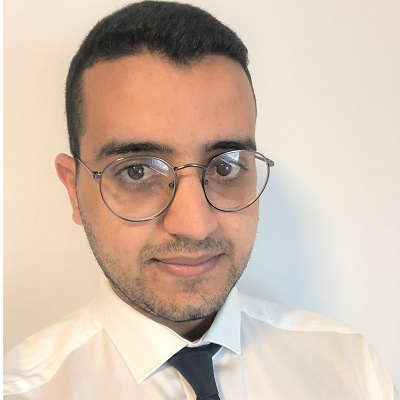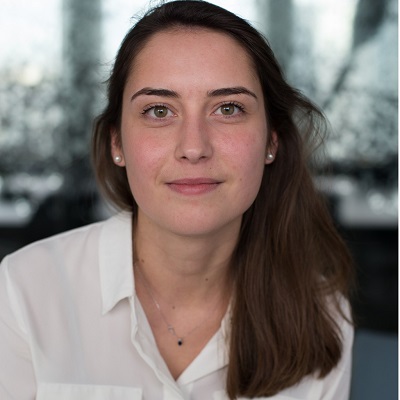On October 12th, 2021, in partnership with Wavestone, Cercle LAB hosted Stéphane Coste, Managing Director of Mutuelle Assurance de l’Education (MAE) for a discussion on the topic of “Insurance in the future: scenarios that examine the role of insurance providers.” The event was hosted by Florian Delambily, Editor-in-Chief of News Assurances Pro, who was joined by Wavestone Partner Joël Nadjar and Wavestone Managing Partner Laurence Al Neimi.
Wavestone’s study on “Insurance in the future”: Grasping trends among evolving societal and individual aspirations
Since 2018, Wavestone has been engaged in a forward-looking study that aims to identify new trends that could emerge in the years to come and to imagine the future of the insurance sector. As part of that study, an exploratory roadmap has been drawn up in collaboration with an ecosystem of researchers: sociologists, geographers, historians, philosophers, neuroscientists, and futurists. The goal being to bring together all these different spheres of knowledge to consider four major areas of development: the human species (population, migration, habitability, etc.), the potential of various technologies, the spread of ideas, and a contemporary understanding of societal aspirations.
These sessions have led to the emergence of three scenarios for the future of the insurance industry. Each has major implications concerning the transformation of the industry, with a greater focus on the role of insurers themselves than on their core business.
Stéphane Coste led the discussion of those three scenarios and shared with us his vision of where societal aspirations are headed, as well as the positioning that insurers might adopt to meet the challenges ahead.
Scenario 1 : A non-growth world as advocated by various “neo-Malthusian” groups
This first scenario hinges on “degrowth,” which should more accurately be called “non-growth,” and is based on the principle that the cost of economic growth is greater than the benefits for society, and incompatible with the conservation of our planet. In other words, the fact that the Earth’s natural resources are not inexhaustible will ultimately lead to a day when it is no longer beneficial to have a permanently growing population, economy, and consumption of those resources. This “non-growth” theory attempts to point out the inconsistencies in our current development model and advocates changes in human behavior. It highlights a need to re-examine the lifestyles we lead in developed societies and presses for a more frugal approach as the only way to ensure the well-being of the greatest number of people on a planet and in a world perceived as finite.
These observations have fueled a fervent desire for change and a spirit of activism among individuals. They have also driven certain sectors of the economy to pursue a transformation; the financial sector first and foremost. This has led to the emergence of impact finance, which promises to marry sustainability and profitability.
But while the insurance industry has its roots in the globalization of trade and a system based on perpetual growth, what positioning could insurers adopt amid such a scenario of non-growth? How could they combine non-growth and sustainability?
Scenario 2 : An ultra technological world driven by the “transhumanist” vision
Sociologists, who were at the heart of these considerations, have shown that very often in the spread of new thinking, when an idea emerges its opposite emerges almost simultaneously. The second scenario, based on an ultra technological world, is the exact opposite of a non-growth world.
This “transhumanist” school of thought is based on the belief that humans have the capacity to surpass the environment in which they are evolving. This idea reflects humans’ ability to shape their own living conditions based predominantly on the pursuit of excellence and success, and no doubt at the expense of any quest for equality. Humanity comes to accept that not all humans evolve at the same pace, and inequalities then become more pronounced. The key aspiration of this world view is not only to be successful, but also to work on maintaining one’s health to enjoy an extended lifespan with good living conditions. That puts health at the core of this scenario in which the human is above all a mind, a consciousness in corporeal form. Furthermore, this scenario gives pride of place to virtual worlds that interact with the physical world. Artificial Intelligence could enable the augmented human to become hyper-aware and reach new states of consciousness. New places and forums for discussion could emerge in virtual worlds, perhaps giving rise to new Societies in which insurers could find their place.
In short, this scenario depicts a world that is both hyper-technological, with a strong emphasis on Artificial Intelligence, and a fragmented world with increasing inequalities.
While there are those, such as Elon Musk, who have wholeheartedly embraced the concept and are already preparing the next steps in the conquest of space, augmented humans, eternal life… This scenario is also fertile ground for systemic risks. What solutions could insurers foresee and work with?
Scenario 3: A world with more balanced development in which external factors are taken into account in calculations of human activity
The underlying principle of this third scenario is undoubtedly frugality. It describes a balanced mode of functioning that takes into account a wider set of external factors in decisions and actions. The transformations will be more reasonable since all the external factors will be included in the—mainly economic—reasoning to arrive at an equitable understanding of the value and the costs of actions. Humans will exist, evolve, and transform the Earth in a reasonable way, being mindful of the limits of the planet.
In this more balanced world, the primary aspirations will relate to local life and Society, humans’ fulfillment within their ecosystem and supply chains that give due thought to using resources responsibly.
To summarize, this scenario advocates a more respectable and reasoned relationship between humans and the world around them, allowing them to exist and flourish by adjusting their lifestyles and consumption.
This scenario of a balanced world could almost seem like a utopia, as well as a world that refuses to choose between the extremes of the first and second scenarios. Finally, what types of risks should insurers focus on if we are moving towards a more balanced world?
Uncharted territory for insurance companies
Although the three scenarios presented here are intentionally extreme, they shine a light on new signals that may seem like only a remote possibility today, but which could progressively and very quickly become a dominant line of thought. They involve major societal transformations that will have implications for the insurance sector. One can also imagine a situation in which all three scenarios come about in parallel, or where one of them rises to dominance over the coming decades, perhaps even with a disconnect between Society’s stated values and the realities on the ground.
Insurers will have to evolve along with the rest of society and adapt their offers to the new nature of their clients. Consequently, it will be more a question of insuring behaviors rather than assets. That will extend to supporting, maintaining a relationship with, and listening to the wider community to better meet its needs. In addition, the reduced pooling of risks coupled with a high degree of predictability could highlight two types of players and transform their business models: on the one hand, insurers providing foresight and service, and on the other hand, reinsurers with a greater capacity to cover risks which would then be global.












